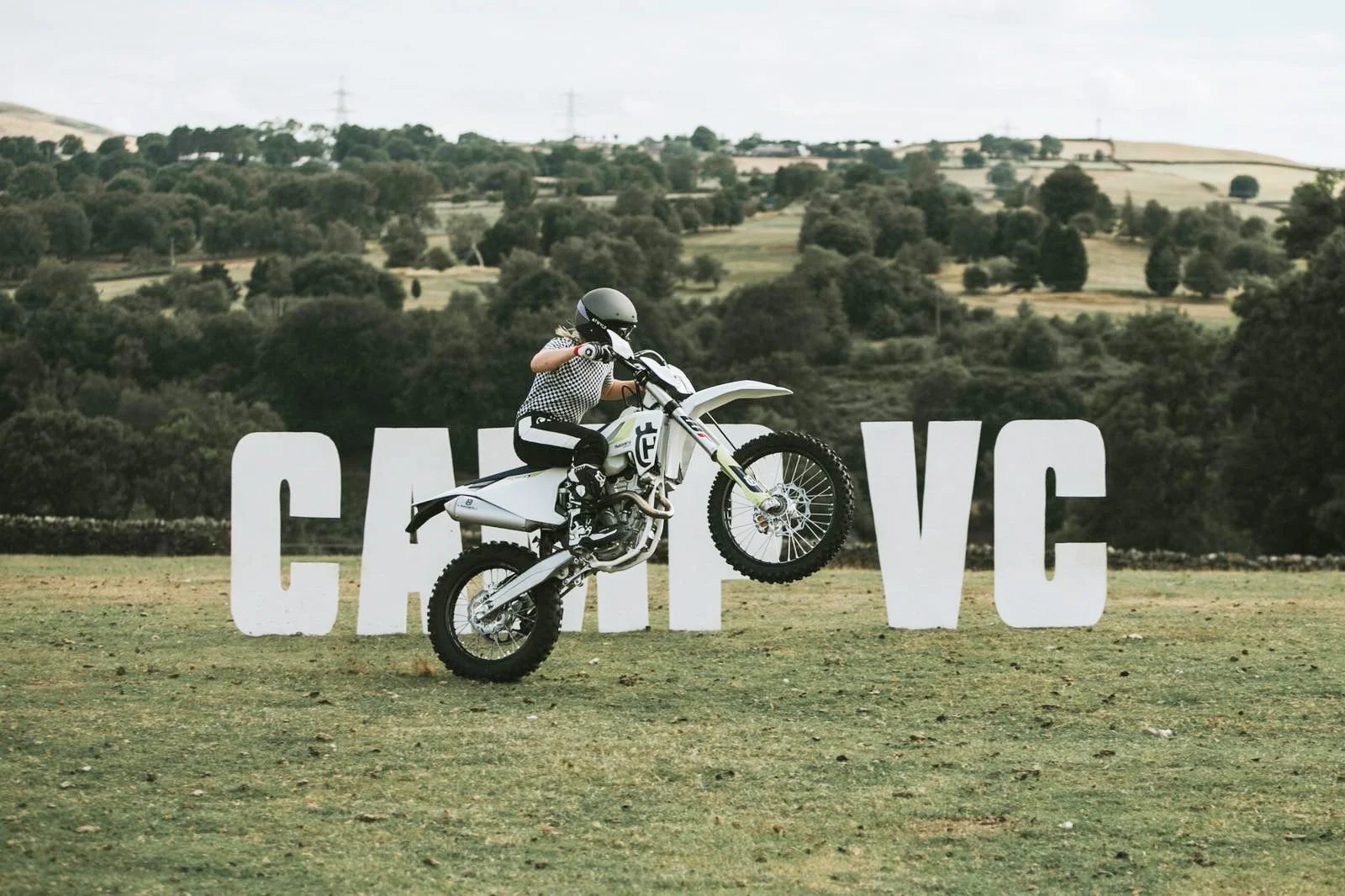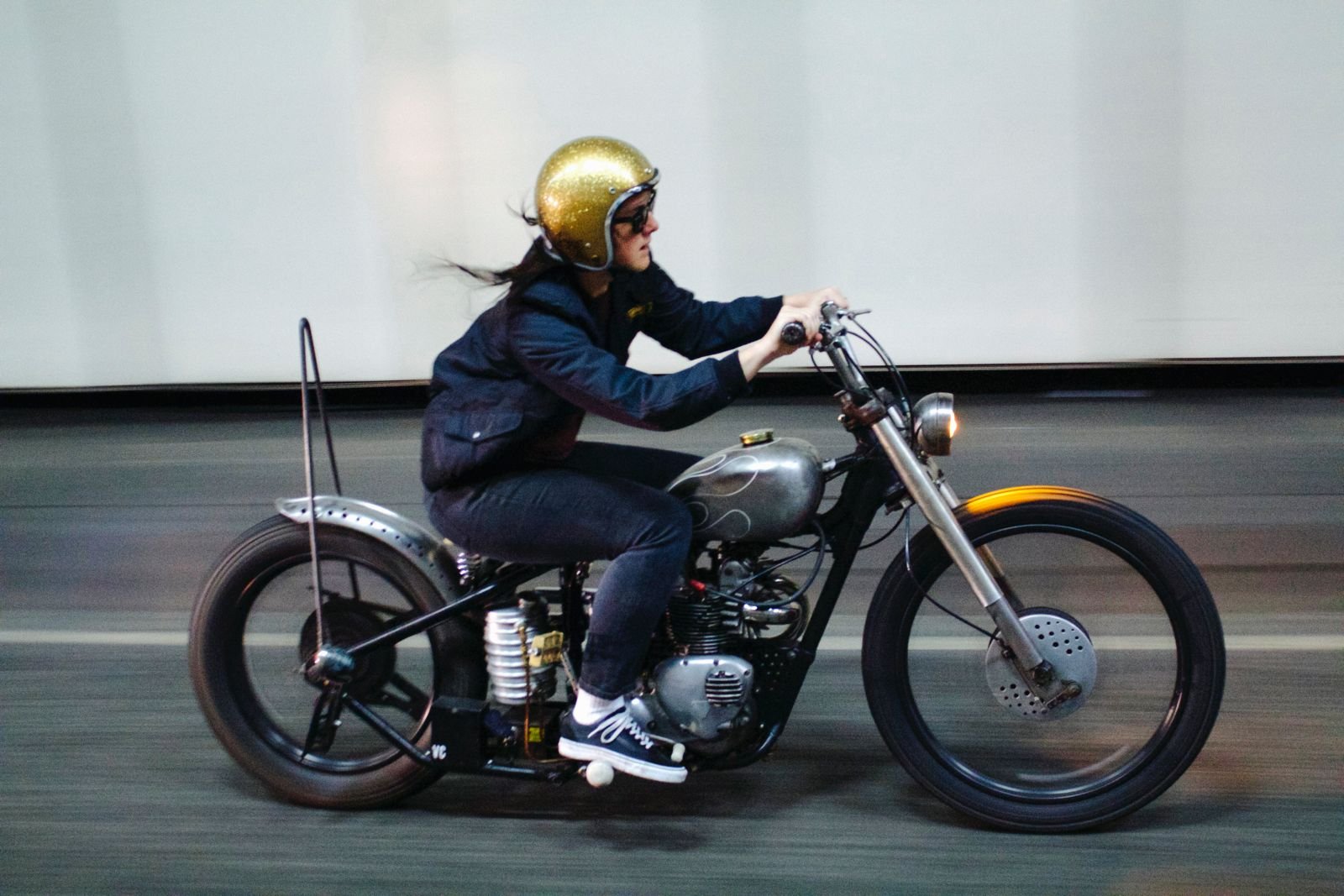How Camp VC Is Redefining Adventure, Feminism, And Freedom For A New Generation
Camp VC Dirt Track racer Leah Tokelove shot by Lydia Harper in a controlled stunt environment(
In the rolling hills of North Wales, a new kind of movement is taking shape—one built not with protest signs or policy papers, but with dirt bikes, skate ramps, and a radical commitment to joy. It’s called Camp VC, and it’s proving that when women and non-binary people are given space to create their own worlds, the results can be both thrilling and transformational.
Founded by Gemma Harrison in 2016, Camp VC began with an idea that was as humble as it was revolutionary: teach a few friends how to ride motorcycles in a London car park. “We were just some friends messing around with motorbikes together in a workshop,” Harrison recalls. But when they posted a casual offer on Instagram to help others learn to ride, the response was immediate and overwhelming. “We were just inundated with messages from people.”
Since then, Camp VC has grown into a network of over 30,000 women and non-binary people—proof that this is more than a weekend gathering; it’s a movement built on connection, courage, and community.
What started as weekend lessons quickly evolved into a full-blown festival. Held each summer in North Wales—a place Harrison calls “goosebump territory”—Camp VC has become a destination for those seeking not just connection, but transformation. The landscape adds its own quiet magic: a place of rugged beauty and undiscovered adventure.
Founder Gemma Harrison shot by Vivianna Gomez-Morales
From Parking Lot to Purpose
What began as a weekend hobby soon grew into a full-scale movement. Today, Camp VC is a sold-out festival that continues to grow every year. It’s a place where Olympic athletes and absolute beginners share ramps and campfires, and where world-class instructors volunteer their time to make adventure more accessible.
Along the way, the event has grown into a living model of what Harrison describes as “completely and utterly by accident”—a kind of community that thrives not in spite of its lack of structure, but because of it. “It just mushroomed outwards from there.”
This unintentional genesis has become one of Camp VC’s greatest strengths. “We approach every different sport or activity in a totally different way,” says Harrison. “We approach it from, hey, we're not all experts. Come and learn with us.”
To date, over 3,200 women have learned to ride motorcycles and more than 800 have taken up skateboarding through Camp VC’s grassroots initiatives—most starting with no prior experience.
Mentorship flows organically at Camp VC. Beginners learn not just from instructors, but from each other—and from seasoned athletes who show up not to perform, but to participate. “You can ask questions to everyone from the girl that started the week before, or the medal winning Olympic Athlete,” says Harrison. That spirit of shared growth—free of ego or competition—is what makes the learning feel both accessible and profound.
Skate ramp | Amy Shore
Building a New Feminism—One Ramp at a Time
Camp VC embodies a shift in feminist thinking—from fighting for space in existing systems to creating entirely new ones. In contrast to past models focused on resistance, this approach is rooted in imagination and construction.
The result is an event where participants can try something new without fear of judgment or failure. “Giving that first taste of what it's like in a non-judgmental environment means everything,” says Harrison. In 2024, 78% of attendees tried something new for the first time, and 93% said they would return.
The community is designed for support rather than spectacle. Whether it’s women learning to ride for the first time, or a speaker like Amira—a mountaineer who’s climbed in the Himalayas—stepping off the stage to try motorcycling herself, the boundaries between teacher and learner are intentionally blurred, emphasizing the mutual admiration that defines the Camp VC atmosphere.
Community isn’t a byproduct of Camp VC—it’s the foundation. From the moment people arrive, they’re welcomed into an environment where connection comes first. Strangers become teammates, mentors, and friends over the course of a weekend. “People come to be topped up by this event,” Harrison says. “We get so many messages saying that.” For many, it’s the rare chance to feel completely seen—and completely themselves.
Free and Safe—At the Same Time
Perhaps the most profound impact of Camp VC is its ability to hold two seemingly opposing experiences: freedom and safety. One participant captured it best: “I've never felt so free and so safe at the same time.” That paradox—freedom within a non‑judgmental, ego‑free space—is core to the design. As Harrison said, “Giving that first taste of what it's like in a non-judgmental environment means everything.”
One standout story Harrison shared was of a woman who had broken her arm in a previous motorcycle lesson and arrived at Camp VC visibly shaken. “A couple of hours later, she was riding around in third gear,” she recalled. “She just grew four sizes bigger. She was so proud of herself.” Moments like that, Harrison says, make everything worth it.
Why Brands Are Paying Attention
With over 130 brand and grassroots community partners over the years, Camp VC isn’t just a feel-good festival—it’s a proof of concept. Leading brands like Red Bull, Royal Enfield, and YETI have recognized the power of authentic, community-led experiences.
Red Bull has supported Camp VC for almost a decade, dating back to when Harrison brought her newborn son to their headquarters to pitch. “They’ve always shown up for us.” Their athlete network and marketing amplification extend Camp VC’s reach, and their continued presence at the festival has given it cultural and commercial credibility.
YETI paired with the event’s community-driven culture to sponsor the skate ramp and shine a spotlight on the women’s skate community; their emphasis on sustainability and reusable products also aligns naturally with the event’s values.
Royal Enfield has also collaborated in multiple ways. VC nods to their Build Train Race initiative in the US as a best in class example of how Enfield has empowered women to build, train, and race motorcycles. Harrison called them “definitely the most forward‑thinking” in the industry, noting how they’re transforming what motorcycle culture can look like through VC and beyond.
Royal Enfield The Guerrilla 450 custom - Red Bull Fitness Area - YETI skate park - shot by Heather Wood
What’s Next: Scale the Magic, Keep the Soul
As Camp VC enters its second decade, Harrison has no intention of slowing down. But scale, for her, doesn’t mean selling out. “I would hope that we could get so big that we could touch so many women… but never lose that authenticity.”
The dream is expansive but deeply human: a space where identity isn’t dictated by category, and adventure doesn’t require a prerequisite. “You don't have to fit into a box,” Harrison insists. “You can just try it.”
In a culture obsessed with competition, Camp VC offers something radically different: community built on curiosity, courage, and care.
And for those who attend, it may just be the beginning of a whole new ride.
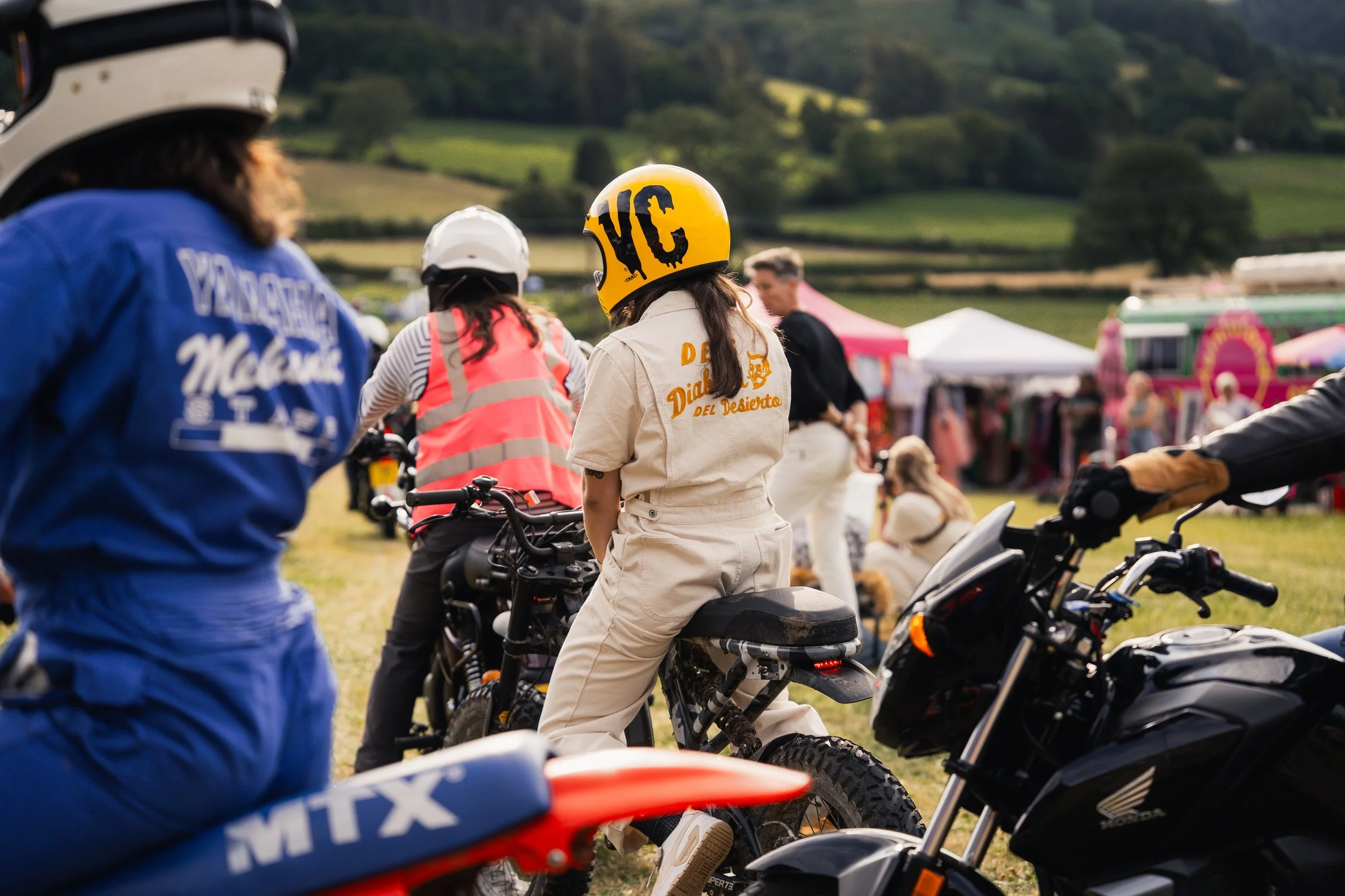
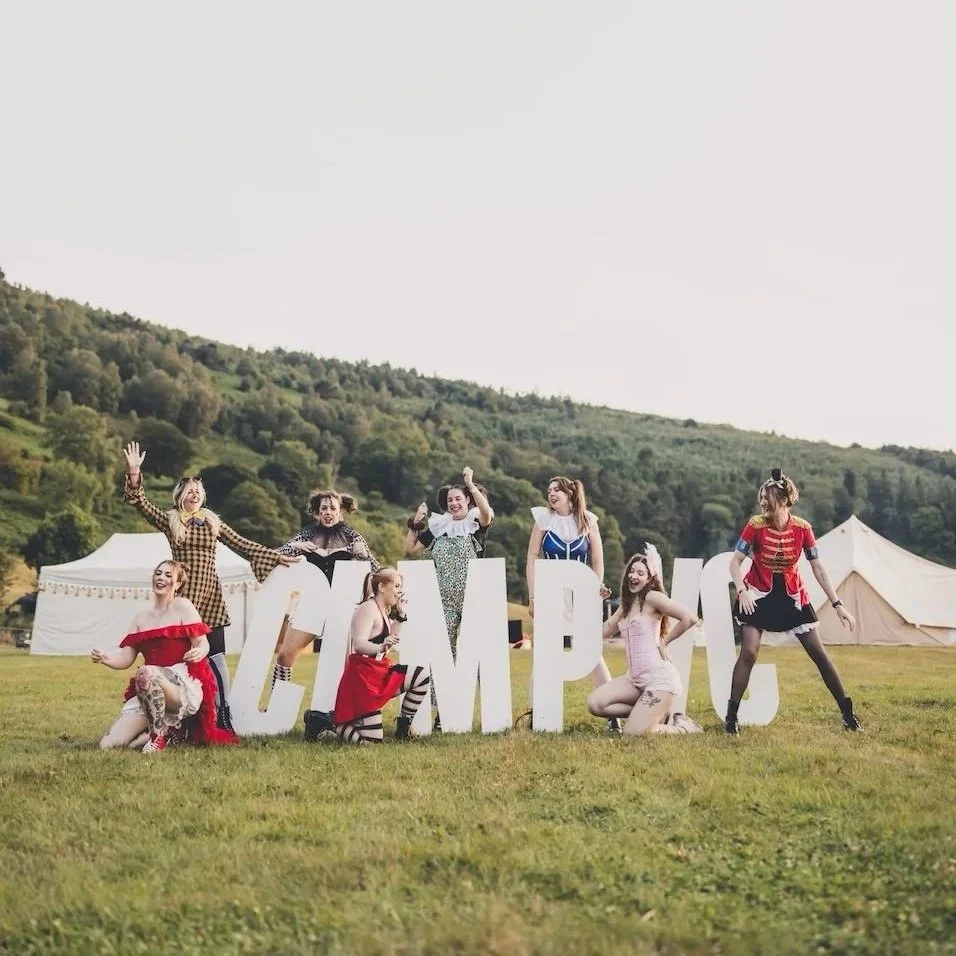
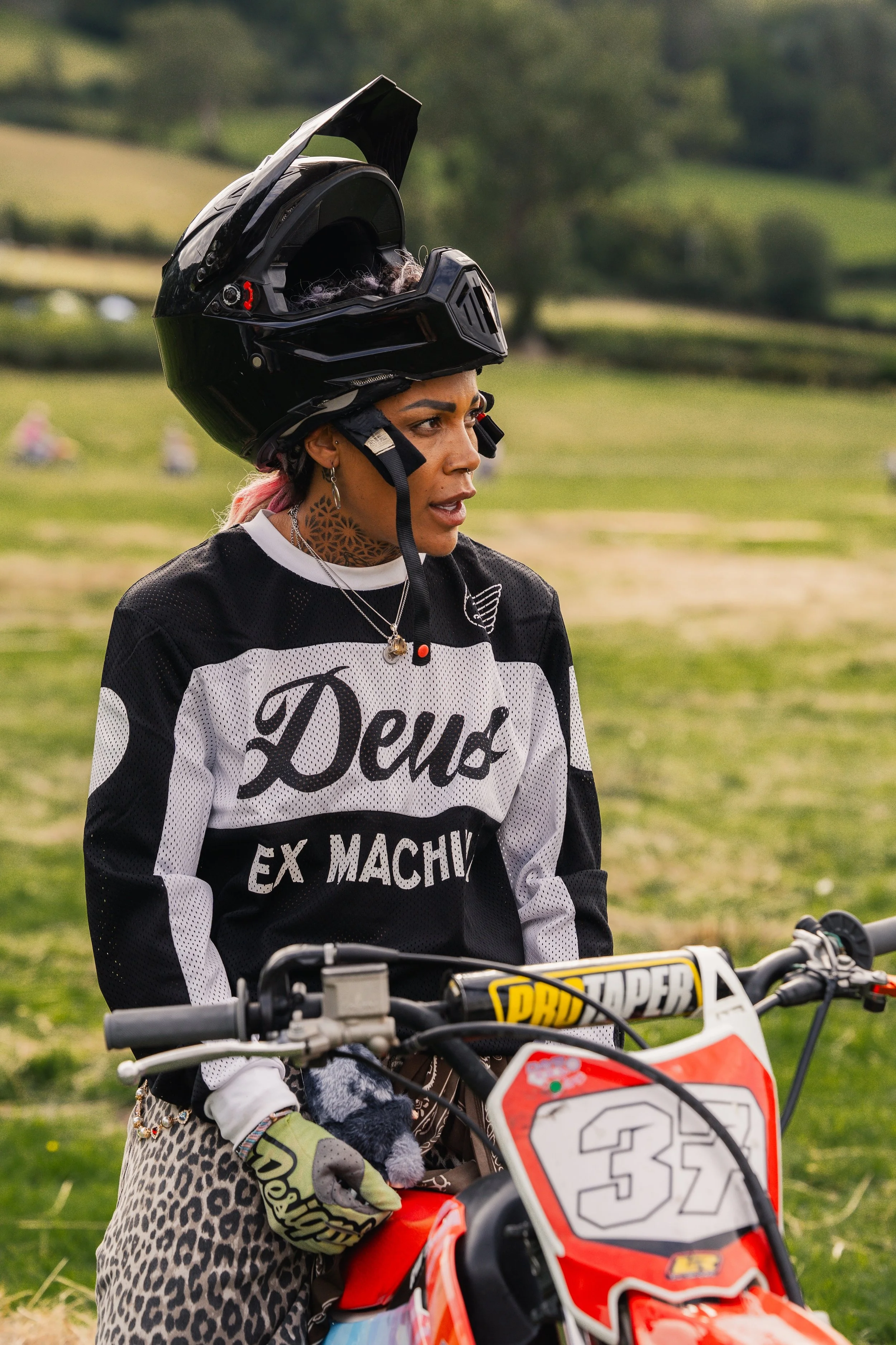
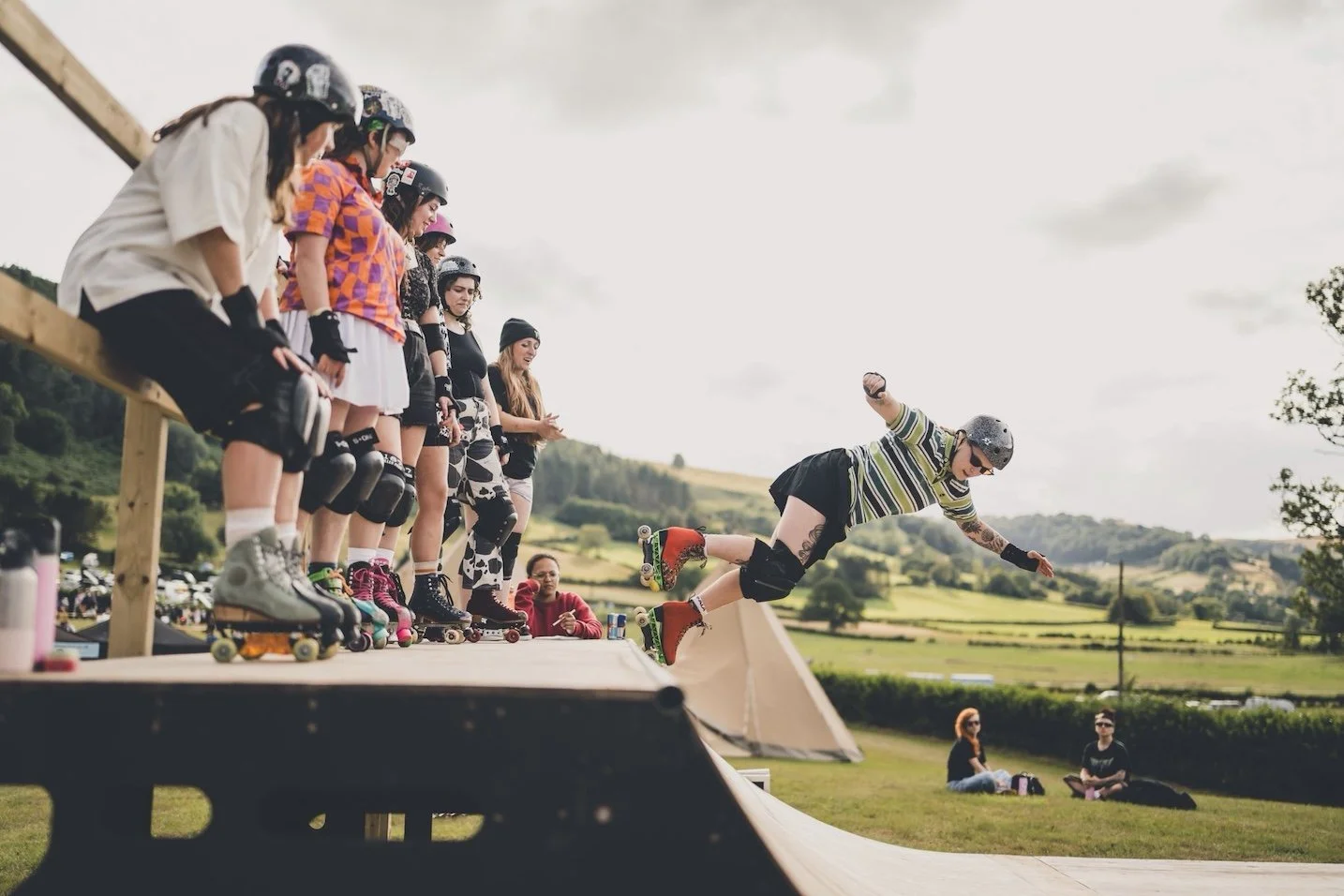

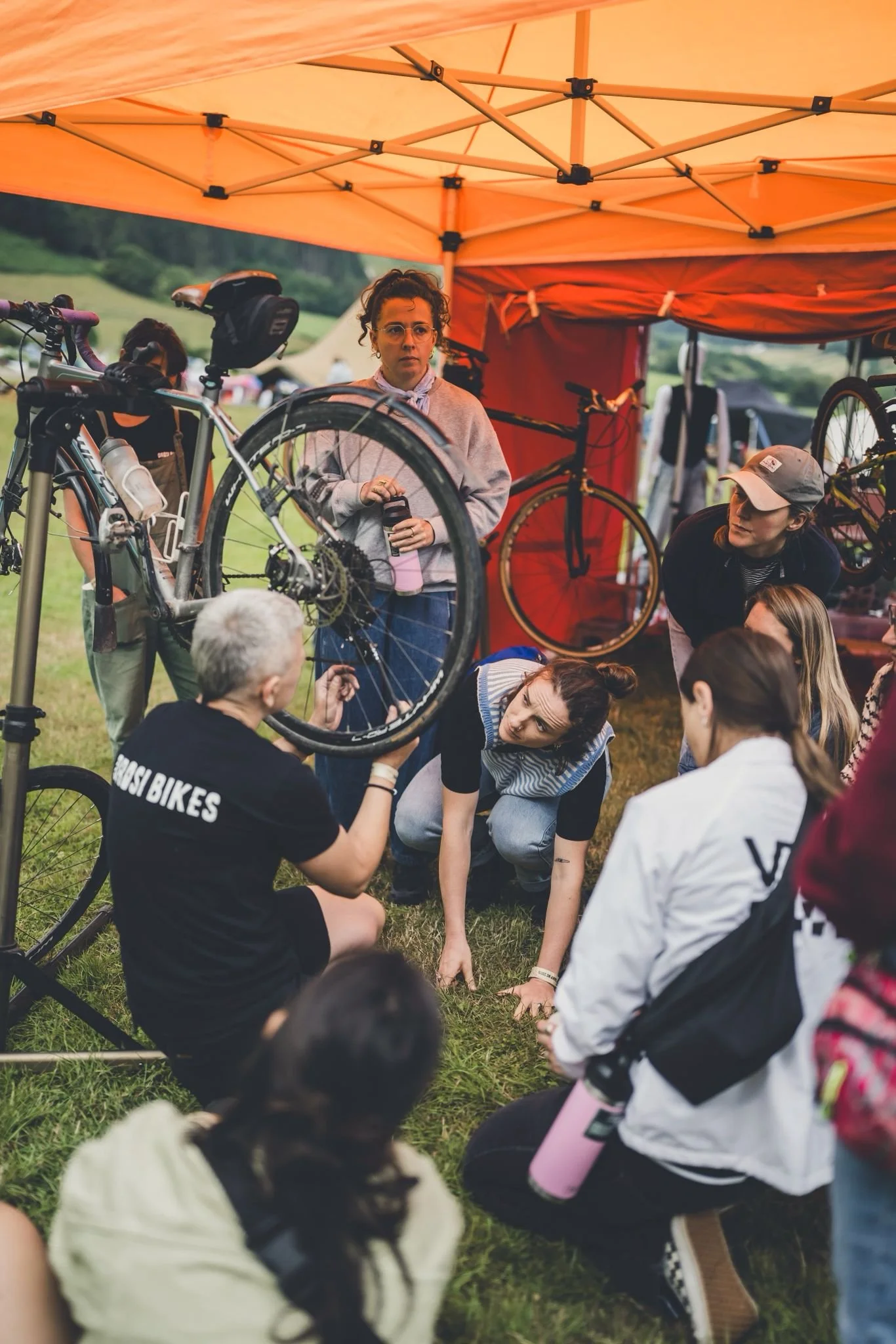
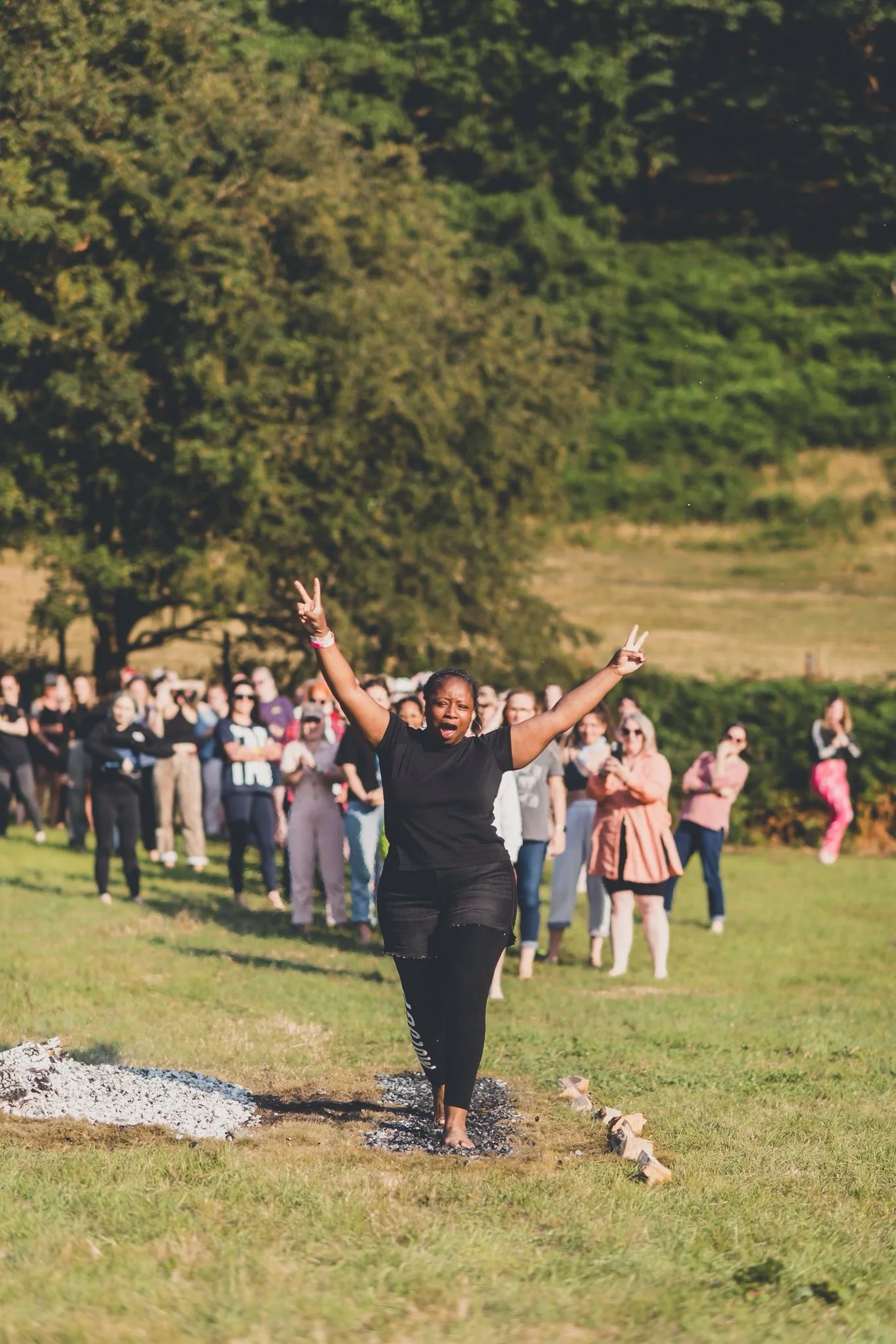
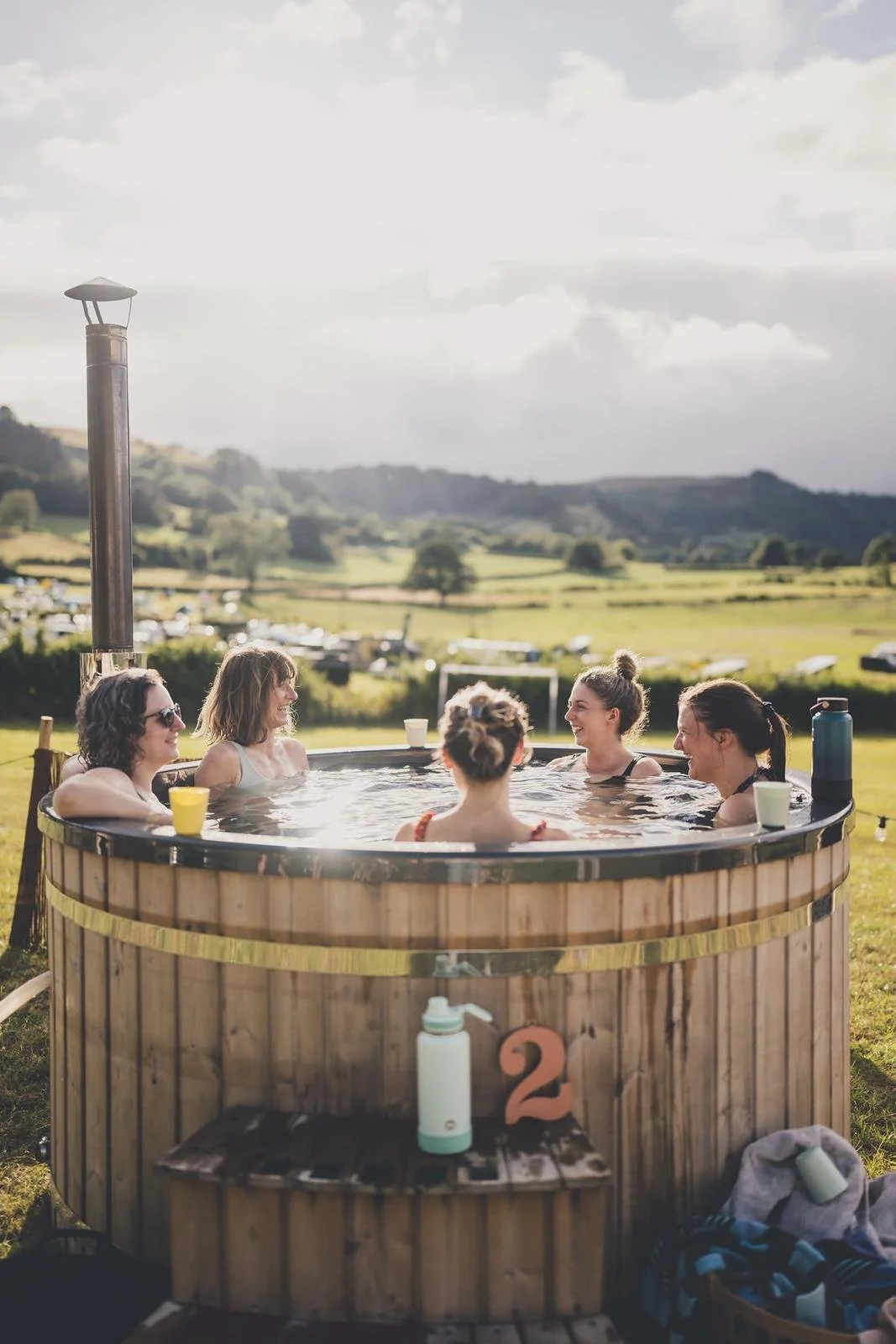
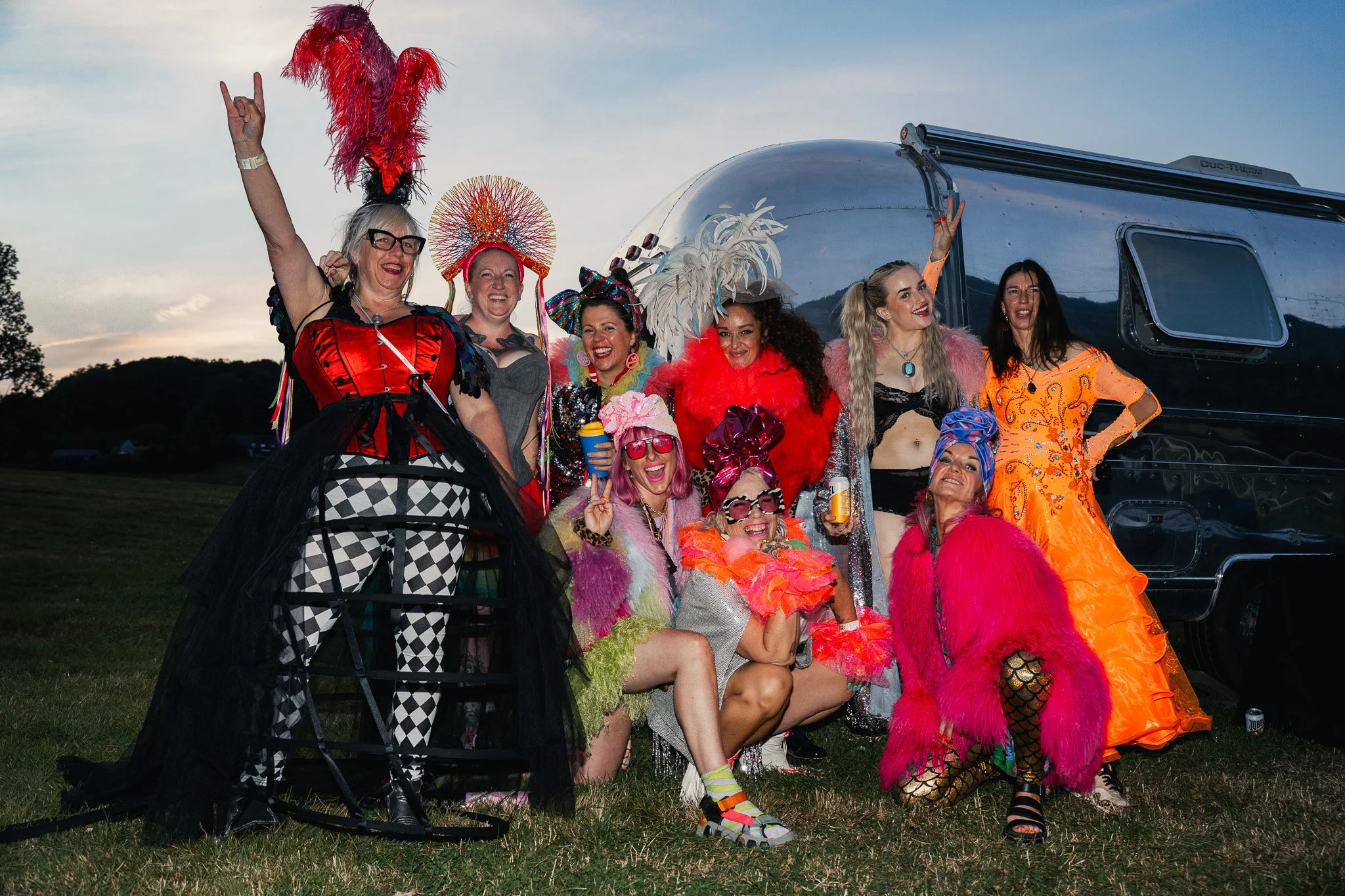
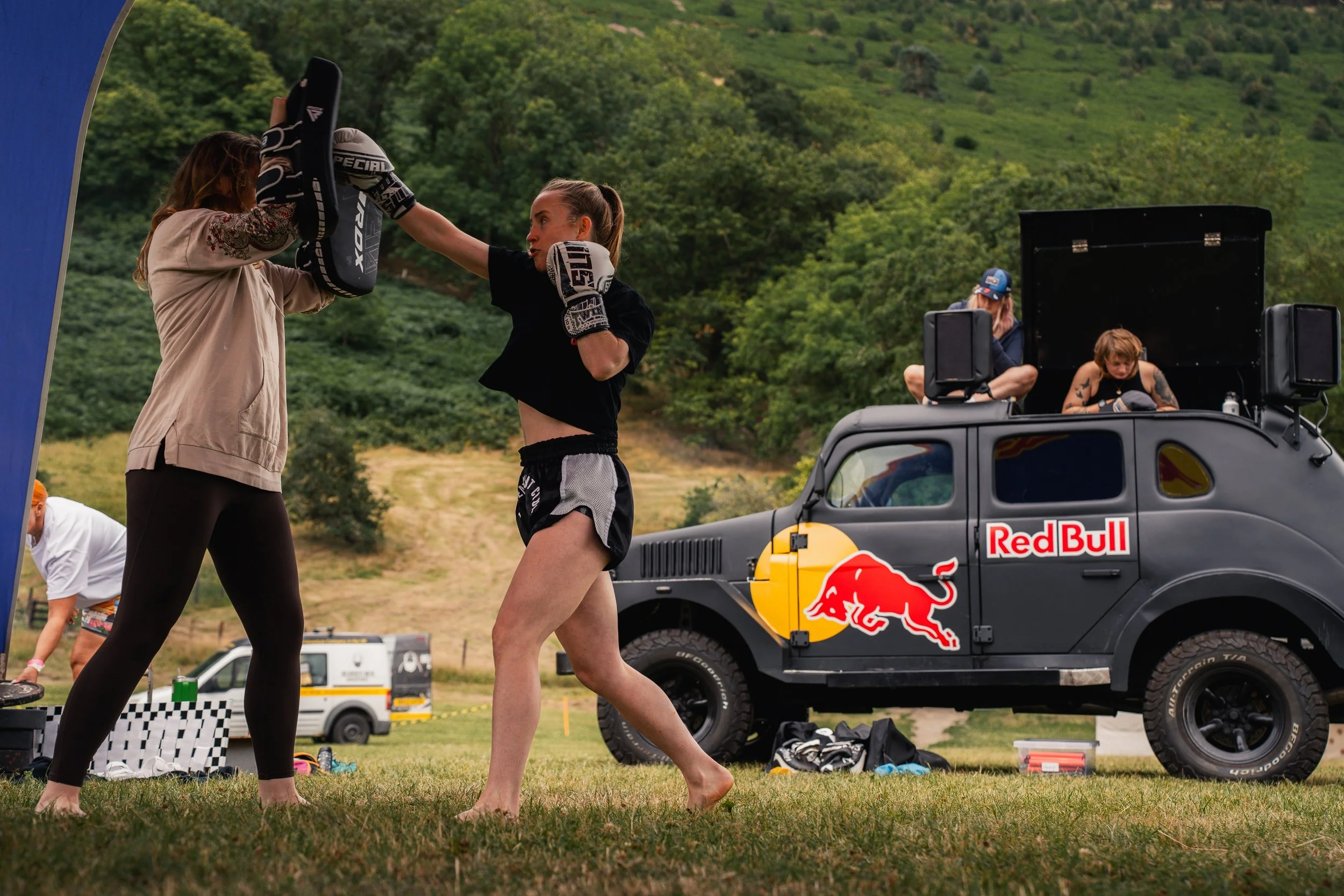
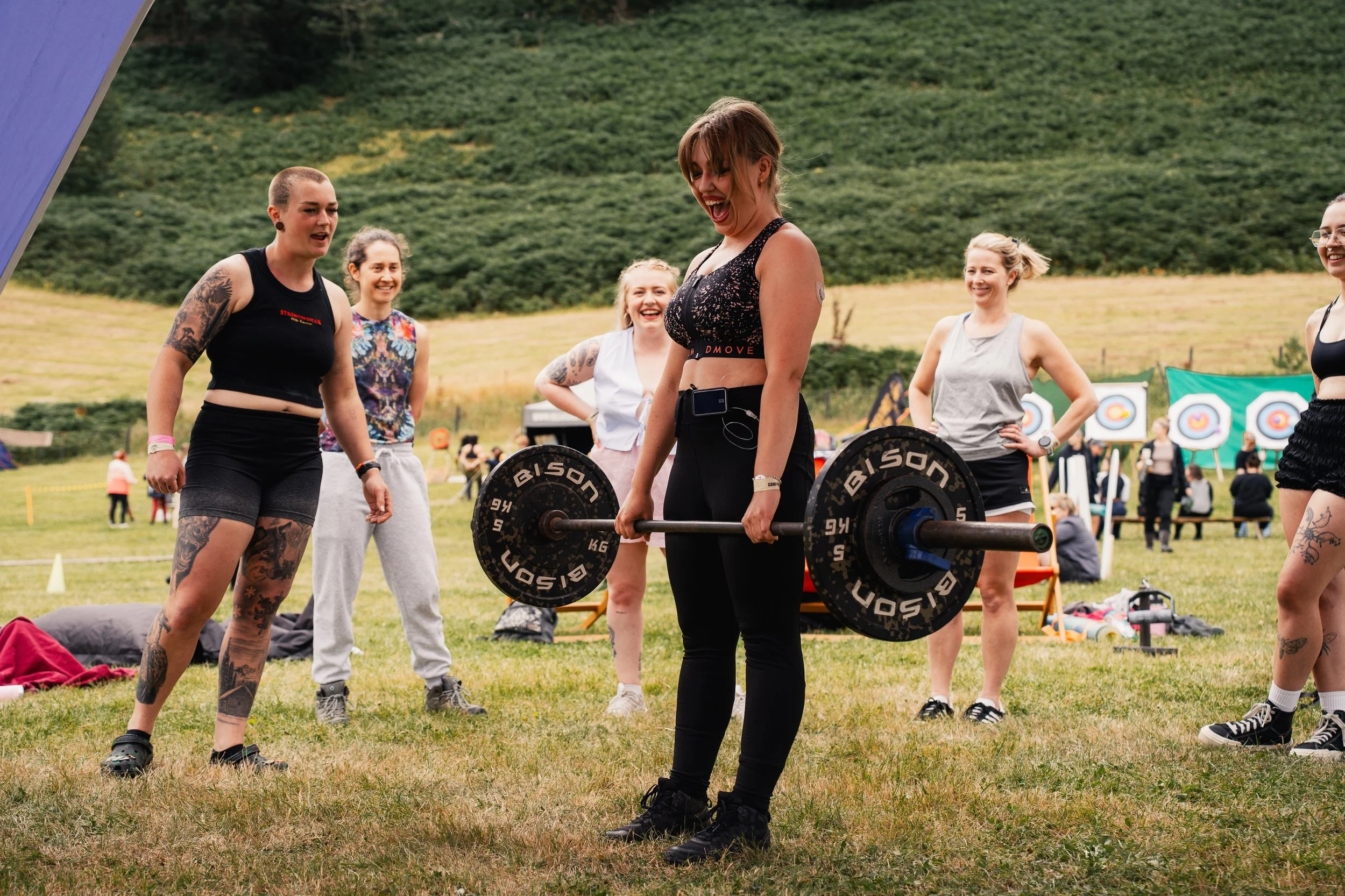
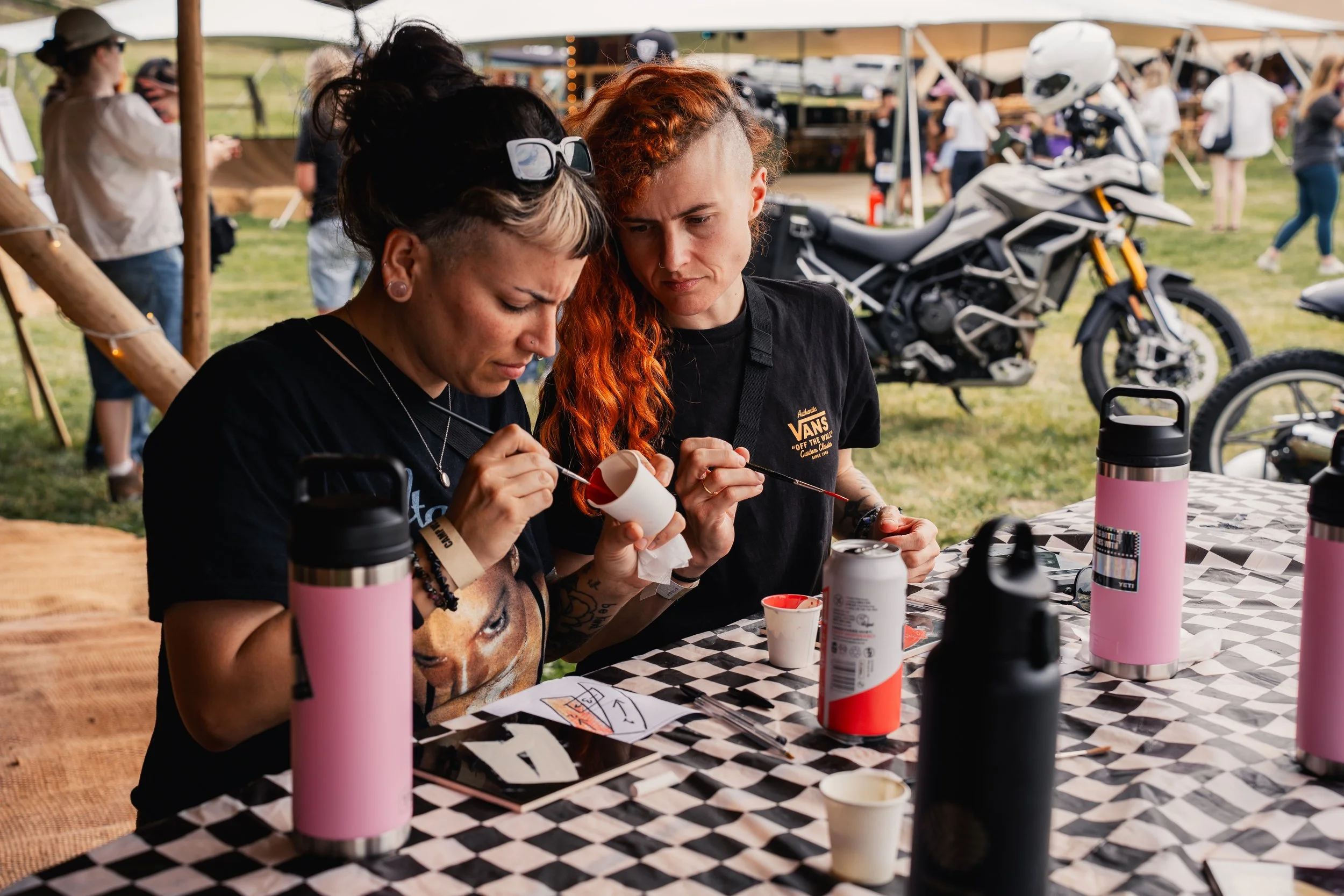
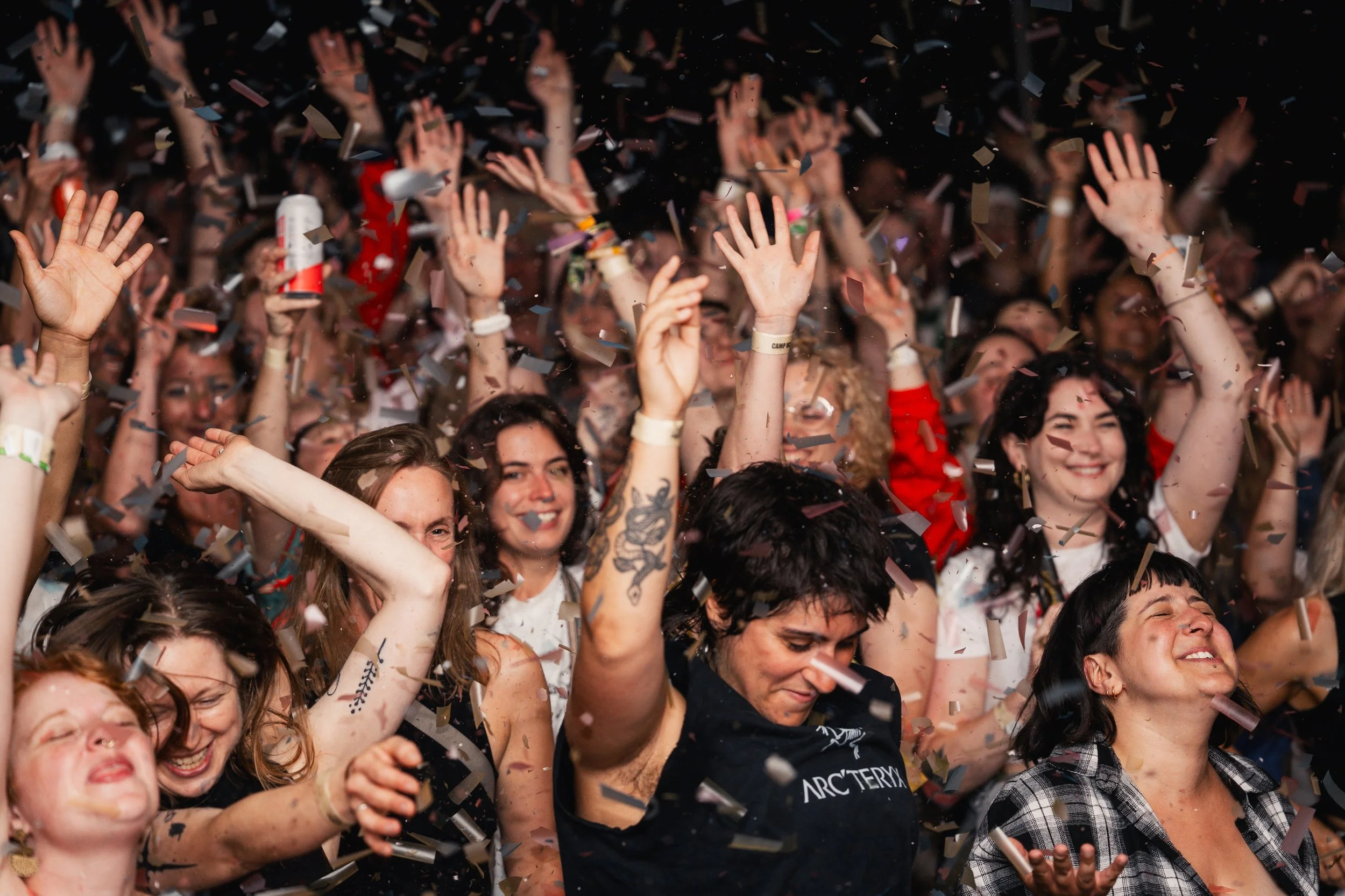
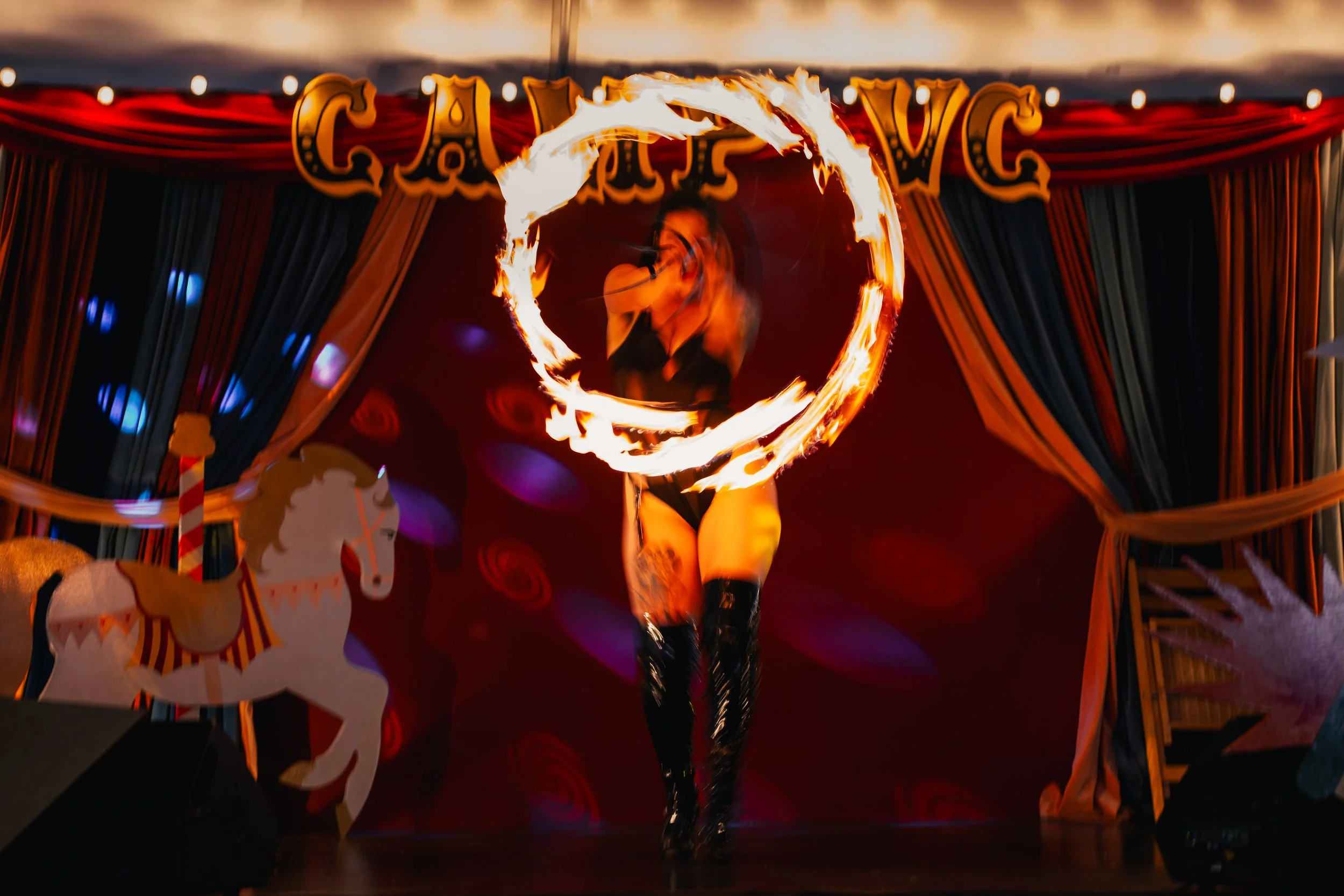
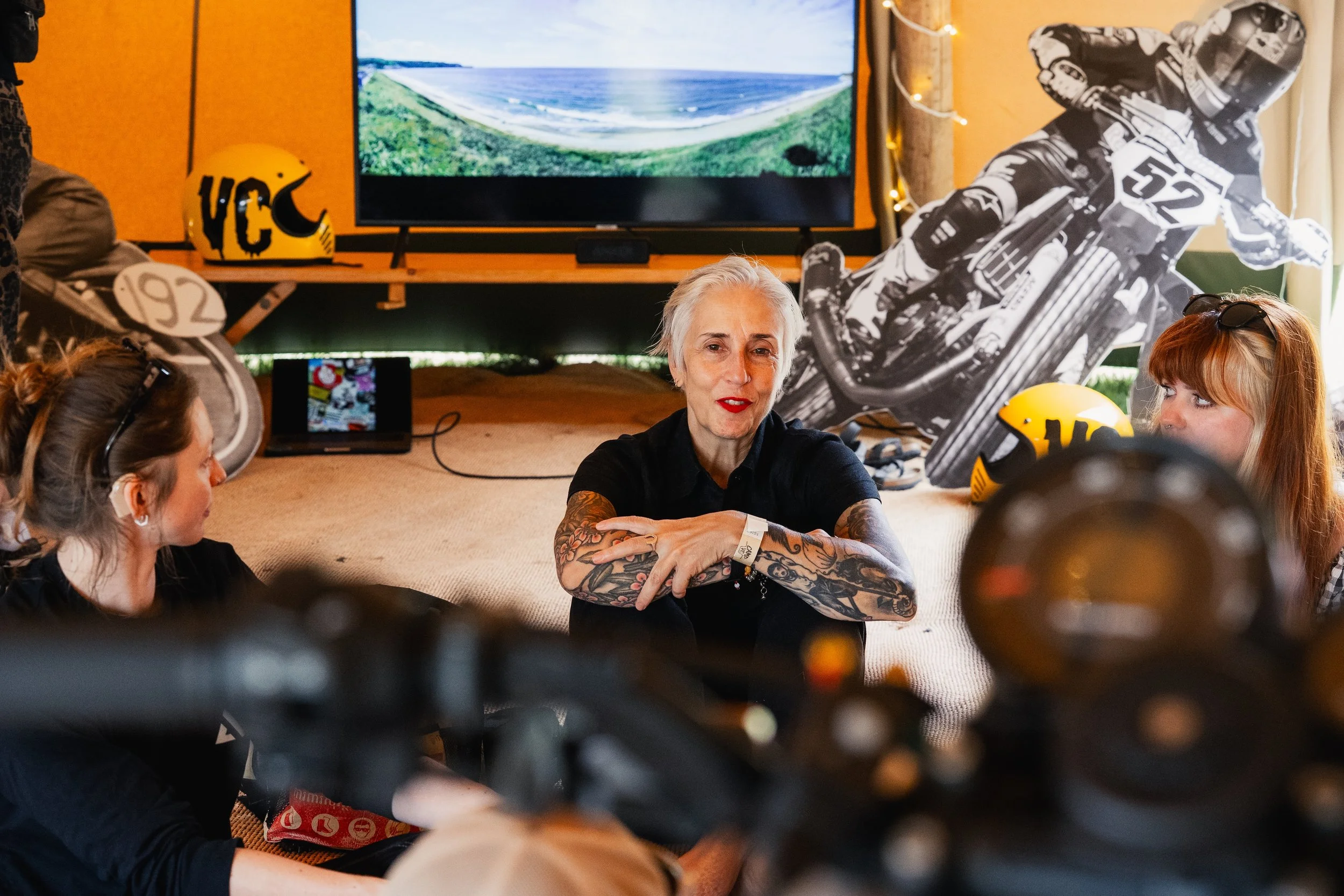
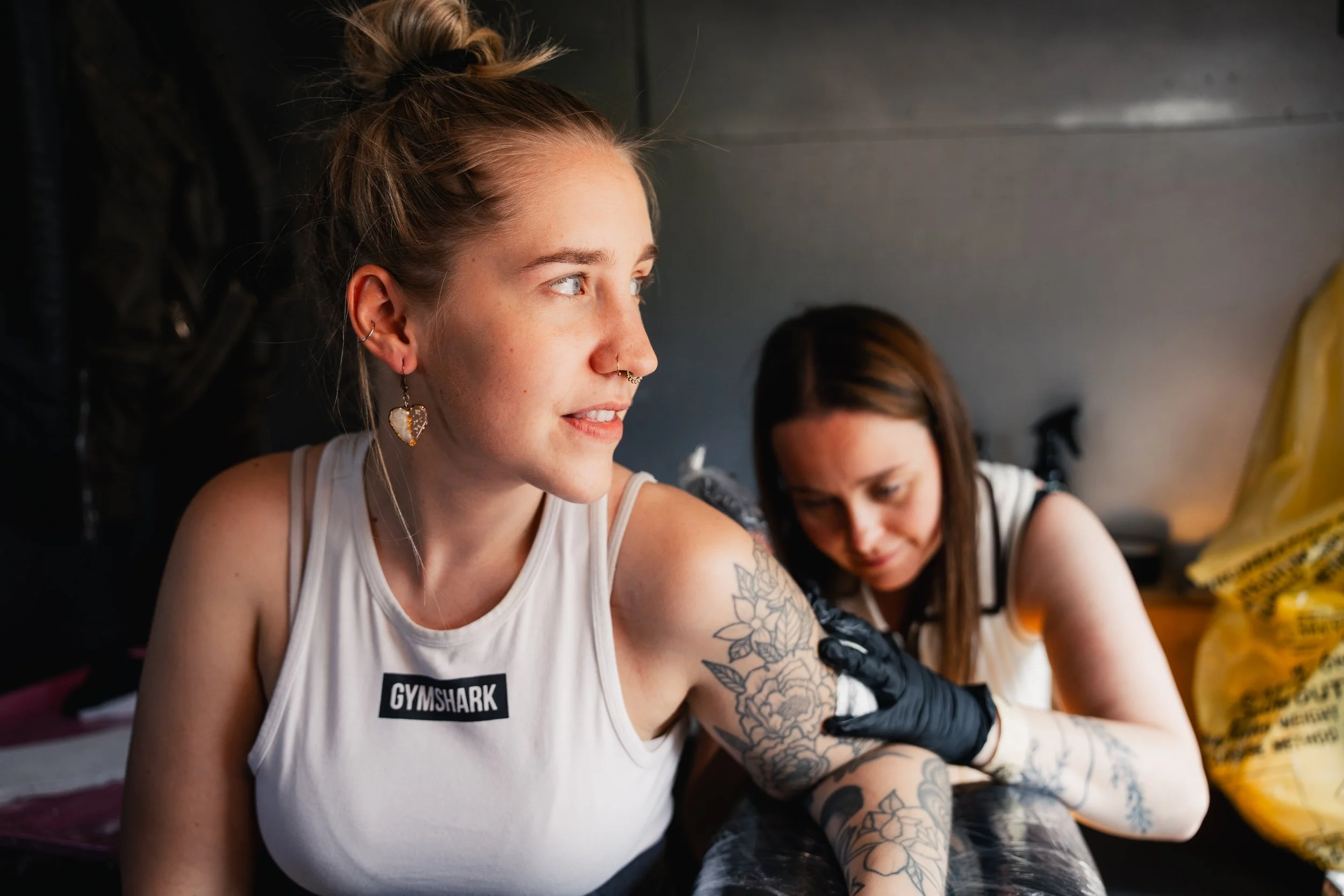
Photographs courtesy of Camp VC, Amy Shore, and Heather Wood

